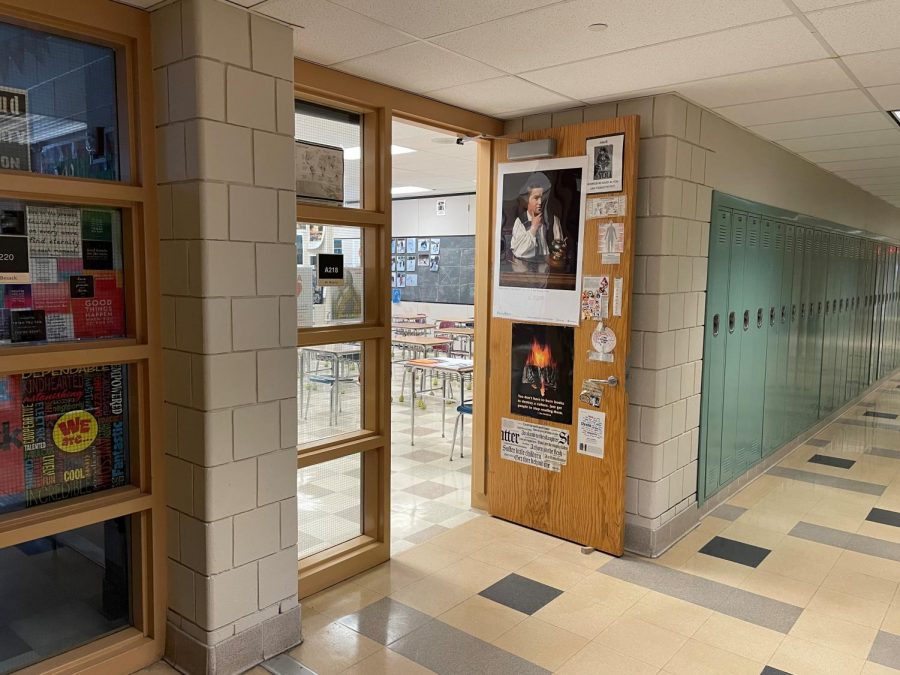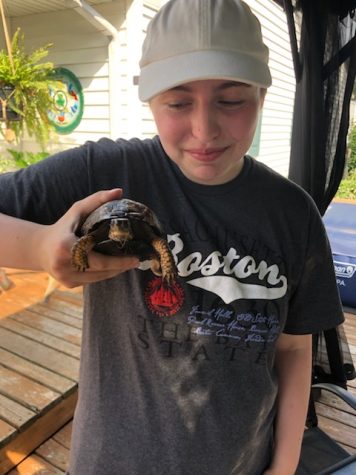The History of Our Current Lives
An interview with Mr. Weaver
The entrance to Mr. Weaver’s History classroom, where students studying the past also learn ways to comprehend the present.
March 1, 2021
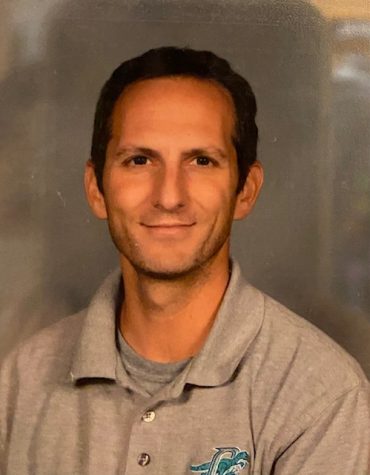
I believe everyone can agree they did not anticipate the events of 2020-2021. As we round the corner to the anniversary of our lives being rearranged, I had a virtual meeting over Teams to discuss those events with Mr. Weaver, a history teacher at CB West. Historic events have defined this past year and I wanted to hear the perspective of someone who is well-versed in historical thinking and teaching history. Before I continue, I would like to state that Mr. Weaver and I both went into this discussion with an open mind and the goal of avoiding bias.
How have the events of 2020 through 2021 impacted the way you teach your class in relation to local, national, and international politics and health challenges?
“The year has given us the chance to see the cause and effect of the current events that we all have been watching unfold. There have been some short-term effects that have appeared; however, there are still long-term effects that we cannot predict the exact results. When teaching European and US History, students can see the causes and effects of defining historical events.”
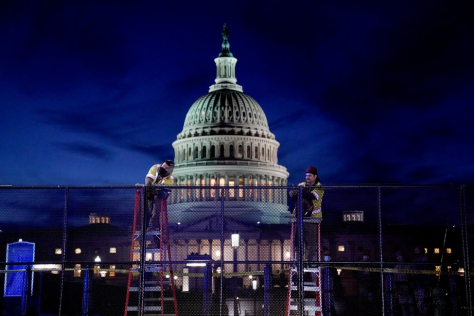
Going into a class after a critical story has arisen, Weaver briefs his students with the facts. He notes that it is crucial to acknowledge the topic and says listening and answering questions is more important than having a lesson plan. As he sees it, if you go into a class with a clear-cut plan, it avoids the possible questions that might linger for some. In history classes, we read about things that necessarily do not have a personal impact on our lives. Moreover, we are able to form an opinion on past situations. Taking part in calm conversations on past topics prepares us for how to appropriately engage with others about current events. Overall, we can only adapt to new situations and navigate them together, allowing open conversations.
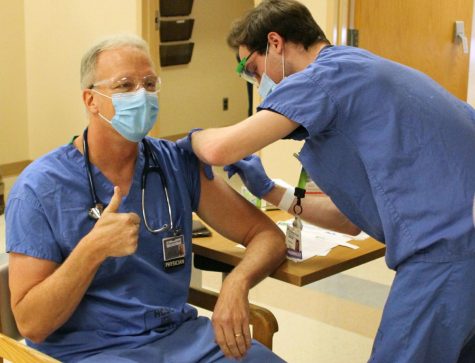
What do you believe is a defining factor for this era and will be included in future history textbooks?
“Without a doubt, the Covid-19 pandemic will make the list of defining events of 2020, along with race relations making an impact. I do not need to recap the details of the unsuspected year we had; however, I want to make a point that we are primary sources for these events and should spread our stories and diverse experiences. The defining moments were sewn together by threads to create the initial news-covering action. In the future, looking at each event, we will be able to see the small threads that created the overall event.”
What do you believe is the impact of technology and social media on the current and future generations as they make sense of current events?
“A positive aspect of the age of technology is the allowance that anyone can have access to the same information. Students from all over the globe have the same chance to research and explore the internet. It unites us and provides another source to enhance education. Though there is good, technology is a host for harmful people and expressions. People can connect through negative similarities and spread their thoughts through social media. Along with this factor, headlines have sparked backlash from different groups due to jumping to conclusions without exploring the topic and noticing the correlation and true viewpoint.”
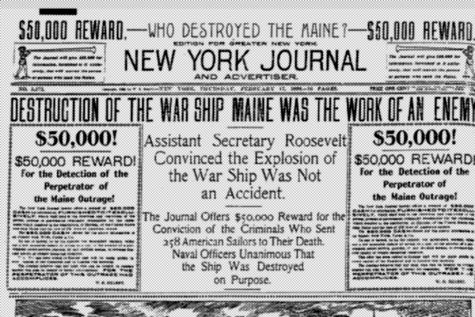
When discussing this, I mentioned how we had seen similar reactions in the era of yellow journalism, and Weaver nodded his head in agreement. Looking at the title of an article and making a judgement sends wrong messages and spreads false information. This impulse could be fixed by continuing to read the rest of the article. The social media and technology era have taken over, we need to take advantage of this and stimulate positive growth when given this privilege. Additionally, as a society, expanding our views instead of closing in on one set idea could benefit our future.
“As a teacher, part of your job is to be on the other side of some things,” Weaver explains. Being the proctor in expansive discussions encourages the individual to equally explore each opinion to create justification. Acknowledging the opposing side strengthens your argument, signifying an opportunity for growth. Weaver references an example made by former US President Barack Obama, who explains how two people can have contradicting opinions; however they must agree on a set of facts to maintain a reasonable argument. In simpler terms, two individuals looking at a painting can disagree on its interest levels, but they both agree that it is a painting, nonetheless.
Kamala Harris is the first female, African American, and Asian American to be the Vice President of the United States. Is this important for the US and the world? Do you believe this affects younger generations of all genders, and if so, why?

“Living out the American Dream is the goal of most, and young kids are told that when they grow up, they can be anything they want to be. However, there has not been enough representation in certain fields – but there is hope for change. You are always told that you can be president or vice president one day, but for females and people of color, this position seemed out of reach. Now, there is a figure to provide inspiration to those who gave up due to lack of female representation. I mentioned a chart I saw depicting all the disadvantages about being female with the consistent pattern of male leaders and how the US overcame the imperfections, allowing Kamala Harris to be vice president. This conveys the growth the US has endured and proves that our nation can continue this path of “breaking the glass ceiling”. This revelation is a large influence on young girls and young boys. There is not a specific formula that someone must fit to achieve a goal. Additionally, Doug Emhoff is the first second gentleman of the US, symbolizing the progressiveness of the Nation. We can see this growth is an array of fields. Super Bowl LV had its first female referee. Where there are firsts, there are seconds and thirds in our future.”
Weaver states that, “I can’t wait for a time where we are no longer using numbers.” Where the expansion of gender, race, or religion, in different fields, is recognized and becomes common.
With a primary focus on presidential politics, a worldwide pandemic, and issues of racial equality, what events have been overlooked that will significantly impact the way we understand the history of this time?

While there are many smaller events that have been overlooked, the ones that stood out to Mr. Weaver were the subjects of climate and the Space Force. The climate has been an issue at hand for a long period, though it has not been the foremost story. We acknowledge there needs to be change in our treatment to the globe, but there has not been great action toward it. This is a present issue that will greatly affect our future. Weaver states that he hopes the recognition for change is not caused by a tremendous negative event. Regarding the Space Force, there has not been much coverage on the innovative steps the US has been taking. There are many nations taking part in launching rockets and showing interest in space. “These are all huge steps in a space program that largely felt stalled.”
There are many important events that have not been fully recognized by the public due to the larger concerns the world has been faced with. When we look back, there are going to be many significant topics that did not seem so significant at the time. And as previously mentioned: We are all primary sources, and we all have a responsibility to spread, share, and preserve information about our history, even when that history isn’t in the distant past.
